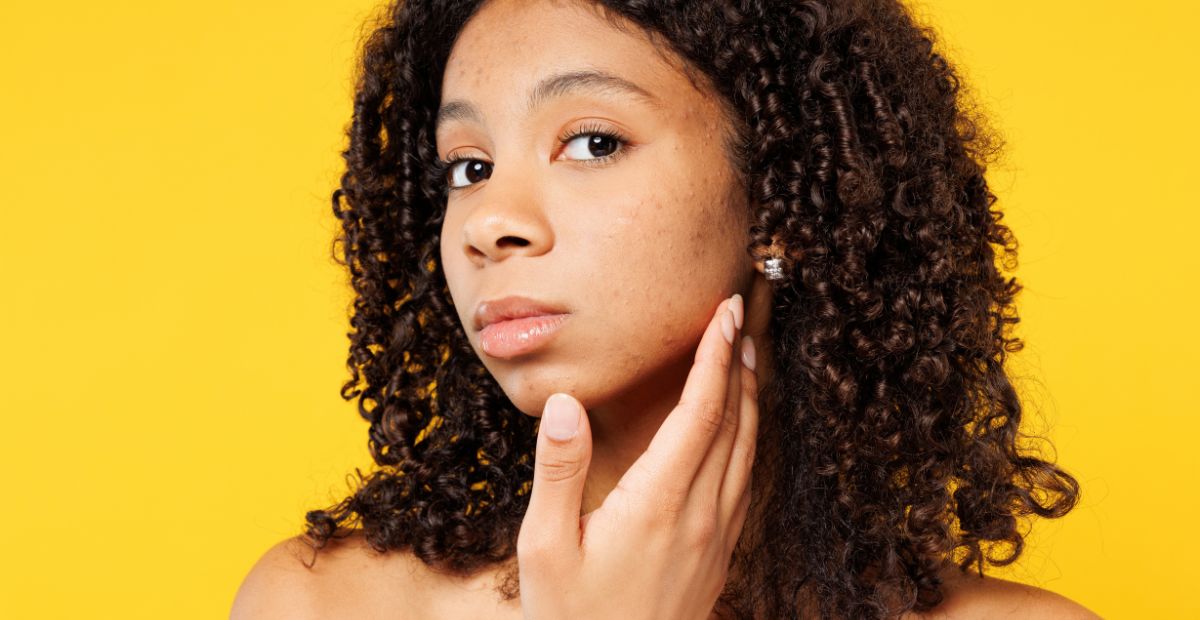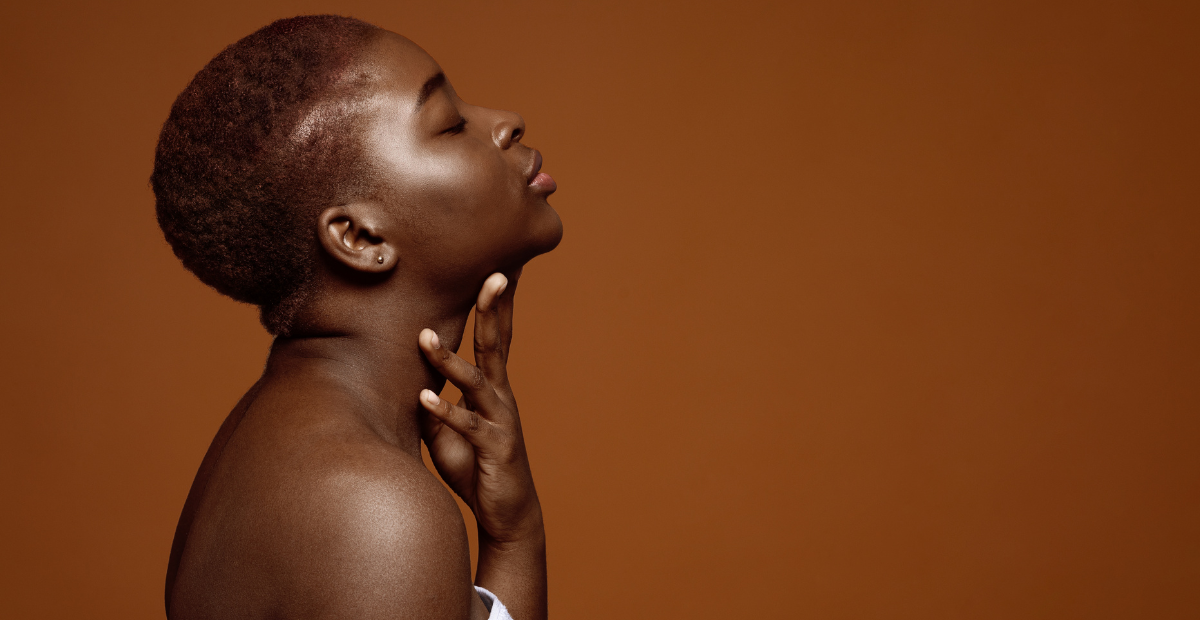Body Odor and Sweat: Your Summer Survival Guide
Onskin Content Team
Your guides through the skincare chaos
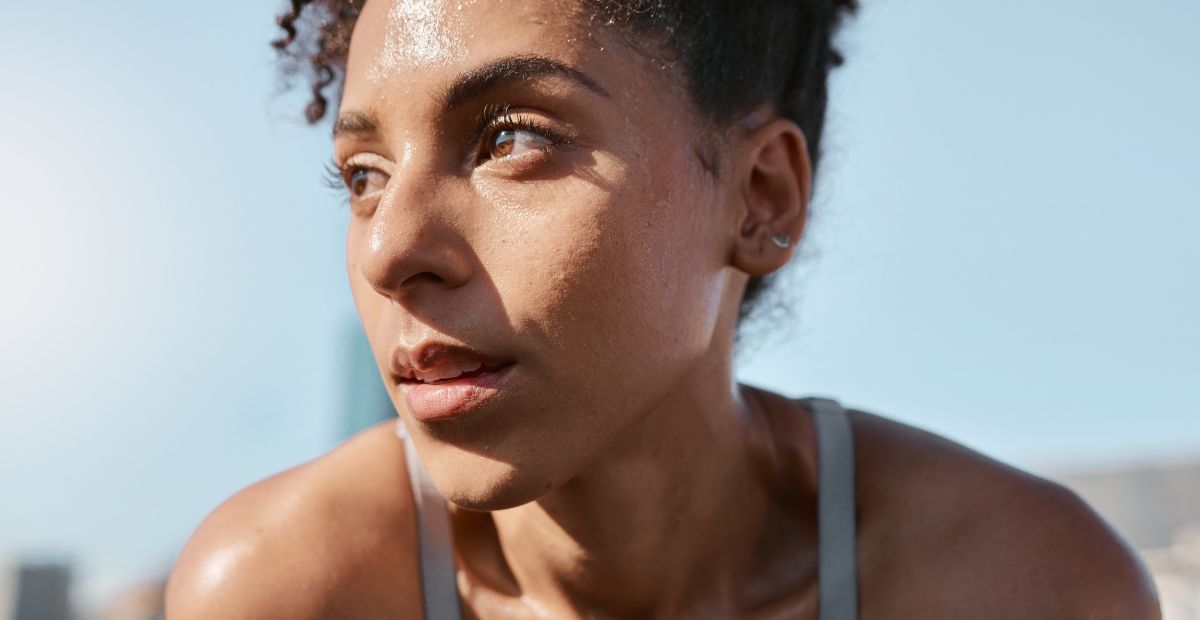
Enjoying sunshine, beach trips, and outdoor fun can be tough when you feel sticky and sweaty, and your clothes stick to you uncomfortably every time you so much as lift your arm. To add insult to injury, body odor can also become a problem after just a couple of hours in the sun.
You might think you’ve done what you can, but make no mistake—summer heat is going to get to you if you don’t take the right precautions. Let’s break down what causes body odor and talk about some easy, practical solutions to prevent it.
One summer survival guide coming right up!
Why does sweat smell?
First thing you should know is that sweat itself doesn’t smell—it’s mostly salt and water. What makes you wrinkle your nose and want to take a shower every hour when it’s hot out is bacteria.
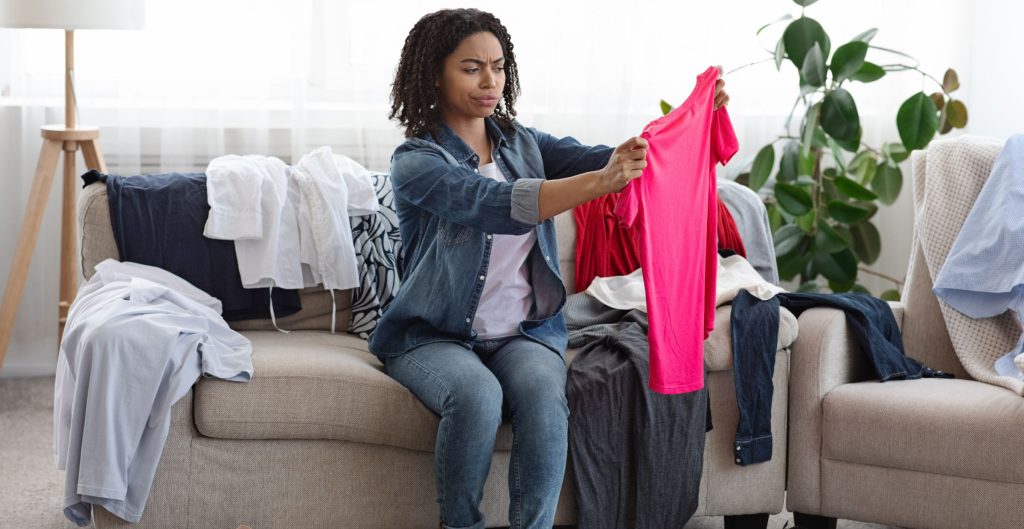
It goes like this: summer heat makes sweat linger on your skin, and the resulting humidity allows bacteria to thrive, which manifests as an unpleasant odor. You might notice your sweat smells like onions or even experience sweet-smelling sweat—both are normal variations typically tied to diet, hormones, and (again) bacterial activity.
So, how can you make things better during the hot summer months?
Four easy fixes for body odor
While some things, like hormonal changes, are better handled with the help of a medical professional, there’s plenty you can do to make your life easier in hot weather.
Let’s start with the basics!
#1 Shower the right way
Taking regular showers is your first line of defense. It might seem obvious, but we’re not talking frequency here (although that matters, too)—we’re talking quality.
A quick rinse might feel good, but it won’t be enough in summer. We suggest a thorough cleanse with a pH-balancing body wash. You don’t want to go overboard with harsh soaps and risk disrupting your skin’s natural barrier! Instead, go for gentle, slightly acidic cleansers—around pH 5.5—to keep bacteria in check.
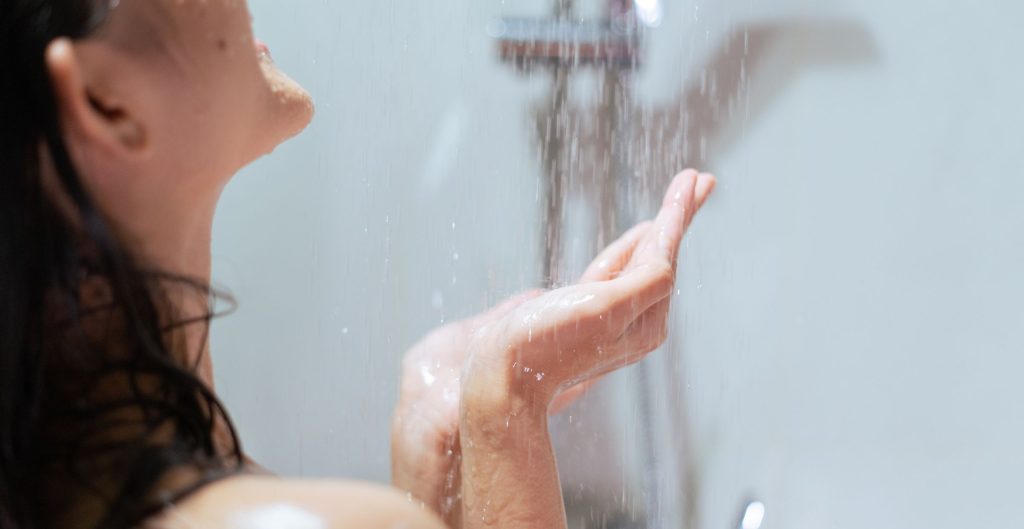
And don’t forget to dry off completely after a shower. Remember what we said about humidity! Pay extra attention to your underarms, feet, and other areas prone to sweating. If body odor is a major concern for you, consider using a clean, dry towel specifically for those areas to avoid spreading bacteria.
#2 Avoid tight clothes
Ideally, your summer outfits will not only look cute but will also help you stay comfortable in hot weather. Tight outfits made of synthetic fabrics might do the first job, but they’ll make the second part a bit trickier by trapping heat and moisture. On the other hand, loose, breathable fabrics like cotton or linen allow better airflow and reduce sweat buildup.
Bonus tip: Opt for lighter colors! Dark fabrics absorb more heat, making you sweat more.
#3 Use the right rescue tactics
Even when you’ve accounted for everything, sweat will most likely happen at some point. It’s a natural (if inconvenient) bodily function. Still, if you know what to do, you can prevent it from affecting your day.
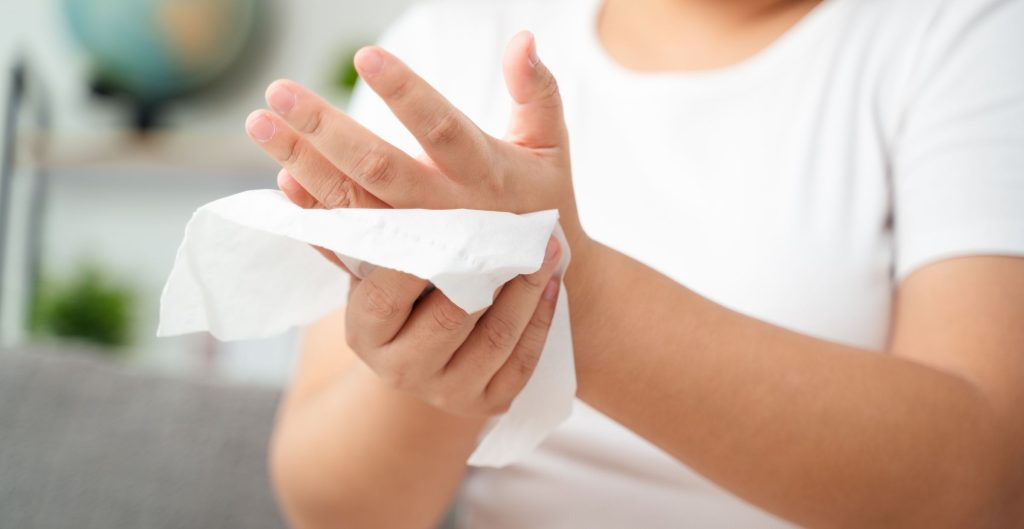
First, remember the blot-don’t-rub rule. If you’re out and about, blot sweat with a paper towel instead of wiping—this removes moisture without irritating your skin. You’ll also get better results by applying deodorant or antiperspirant to clean, dry skin.
Bonus tip: For a quick fix in public, keep travel-sized hygiene wipes in your bag. They can be a lifesaver for freshening up when showering isn’t an option.
#4 Let your skin breathe
Bedtime is your skin’s chance to recover. Skip heavy lotions and fabrics that trap heat and moisture. Instead, choose loose, breathable pajamas (or go without!) and give your skin time to “air out.”
Proper ventilation and reduced humidity can help keep bacterial growth at bay and prevent next-day body odor, even in hot weather.
Common mistakes that make body odor worse
If you find yourself wondering, “Why do I smell bad even when I’m doing everything right?” the answer might be right there on the surface. Even if you do everything right, some things may be holding you back from smelling your best.
Mistake 1: Using scented products
More specifically, overusing scented products. When you mix perfumes and heavily fragranced deodorants with the bacteria on your skin, you risk creating an even stronger smell.
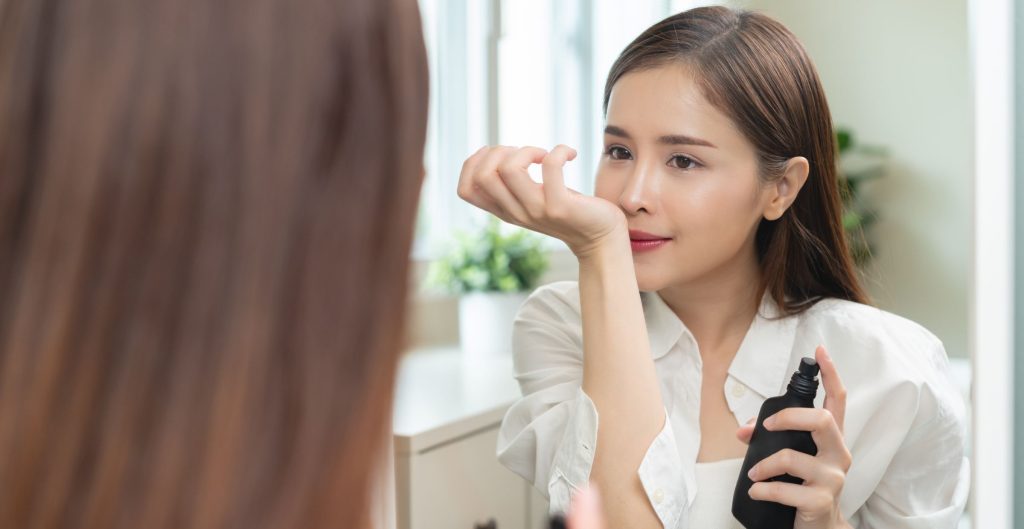
Mistake 2: Shaving before deodorant
Avoid shaving immediately before applying deodorant. Freshly shaved skin is sensitive and more prone to irritation, which allows odor-causing bacteria to thrive.
Bonus tip: If your skin is naturally sensitive, consider aluminum-free deodorant options.
Mistake 3: Ignoring diet triggers
Foods like garlic, onions, alcohol, and spicy dishes contain compounds that exit through sweat. Consume too much too often, and you risk making your sweat smell particularly sharp or sweet.
Body odor vs. the gym
If you’re one of those strong-willed people who hit the gym regularly even in summer, body odor is most likely a big concern. But don’t worry! Here are three simple tips that can keep your active lifestyle body odor-free.
Wear appropriate clothes
Synthetic fabrics such as polyester are a popular choice for sportswear because they’re lightweight and durable. However, studies have shown that polyester contributes to more intense and unpleasant body odor when compared to cotton. If you exercise regularly, consider switching to breathable fabrics or blends for durability.
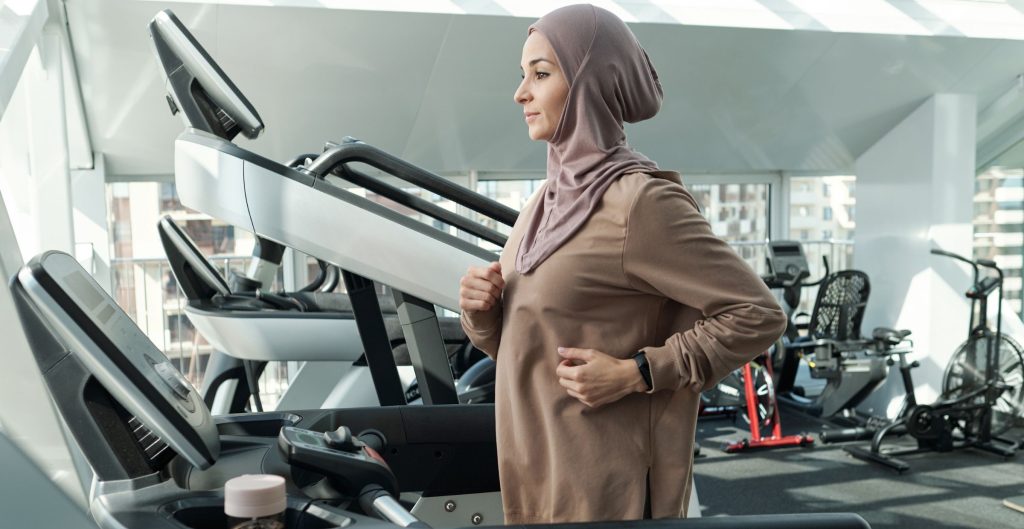
Shower ASAP
To prevent bacteria from settling in, we recommend showering as soon as you can after a workout. Most gyms, especially larger chains, offer private or semi-private shower stalls within their locker rooms. If you’re comfortable using public showers, this can be a great option!
Use antiperspirant
Deodorants are great, but you’ll want to go one step further if you plan on being active. The best way to use antiperspirant is to apply it to clean, dry skin right before going to bed the night before your trip to the gym. This way, you will sweat less and create a less favorable environment for the odor-producing bacteria.
Final thoughts
Everyone’s body is different. What works for someone else you know might not work for you. Keeping track of skincare ingredients, fabrics, and foods to spot patterns can help. If the issue persists and you’re considering more permanent solutions for sweat and body odor, we recommend talking with your doctor.
FAQ
-
Where do I start with OnSkin?
Download the app and think of a product you’d like to know more about. Then, go to the main screen and choose how you’d like to get the info —by manually looking it up in the search bar, by scanning its barcode, or by simply taking a picture of the packaging. Once you’ve done any of these, you can see how safe the product is and if it suits your skin or hair (if this analysis is available).
-
What is Safety Rating, and how is it calculated?
In OnSkin, we base product rates on ingredients. Each is closely studied by our medical team and then evaluated. This way, each product gets a score from 0 to 100, with 100 as the safest level.
Safety Levels
- Excellent (76–100)
- Good (51–75)
- Not great (26–50)
- Bad (0–25)
These scores are backed by the latest scientific studies. You can find links to the resources we’ve used on each ingredient page. To assess the safety of product ingredients, we evaluate them according to the following parameters/criteria
- Endocrine disruption risk / Reproductive toxicity
Indicates the probability of mimicking, blocking, or interfering with the body hormones.
- Сarcinogenicity
Measures the potential risk of inducing cancer.
- Allergy risk
Estimates the probability of an allergic reaction.
- High concentration alert
Determines the risk of being unsafe in certain amounts.
-
What is Skin Match?
Based on the info you input about your skin type, age, skin care goal, and other “settings,” OnSkin checks how well a product is tailored to your unique skin needs — it’s basically like a dermatologist helping you find the right products, minus the fees and the long wait. The product you’re checking might be labeled as It’s a match!, Hit-or-miss, or Not a match for you. The app also detects ingredient groups such as Anti-acne, Anti-inflammatory, Moisturizes, May be drying, Comedogenic, and others — by tapping one, you see exactly what ingredients from this or that group are in the product.
-
I seem to have a problem with using the app. Who should I contact?
Please reach out to us at [email protected], and we’ll carefully look into your issue. Your ideas for improving the app are also very welcome!
-
Do you have an Android version?
Not yet! Hey Android users, we hear you, and we're thinking about making an Android version, but we haven't started the development yet.
Tracker Sent!
It’s on the way to your inbox.


